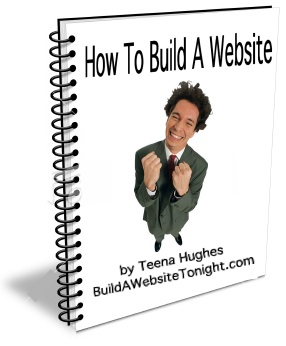What is SEO?
"What is SEO?" Are you scratching your head every time you hear this and still wondering what on earth it means?
I'm going to break this down into simple explanations which I hope will help you.
You might also want to join my next SEO TRAINING COURSE for Beginners >>
SEO stands for Search Engine Optimization
Search Engine Optimization means the techniques used to make your individual web & blog pages "search-engine friendly".
When the search engine robots visit each of your pages, they look for certain key bits of information.
If your pages have all the correct information in the right places (in the HTML behind the scenes of each page, called Meta Tags), and it matches the CONTENT of that web page, then the search engine ROBOT says, "AHA! Now I know what THIS PAGE is about!" - and it proceeds to add you to the right search category for the content.
This means that when someone searches for something and it MATCHES your Meta Tags AND your Content, then you will appear in the Search Engine Results Pages (known as SERPs).
(PS -- The search engines look at other factors but I don't want to confuse you will too much information just yet.)
Next chunk of information about SEO :-)
OK - so now your web page is added to the results pages when someone searches and there's a match.
What if there are hundreds, thousands or millions of OTHER web pages which ALSO match the search?
How will your web page climb up to Page 1 or 2 or even 3 of ALL those search results?
These are all excellent questions, and this is where I can tell you some of the ways to make sure your web or blog page starts to climb up through the ranks of all the other results, until it reaches page 1.
I have achieved this on websites by using long-tail keywords and will give you a few examples in the video.
What are long-tail keywords? or long-tailed keywords?
Another great question :-)
Imagine your web page is about making red shoes - so you use "red shoes" as the keywords for that one page.
Can you possibly imagine how MANY pages might mention those two words SOMEWHERE on the page?
That's right - millions of pages on websites and blogs. As at today - 29th May 2010 - there are 71,300,000 - that's over 71 million pages with those two words on them - WOW!:

So this is where we need to brainstorm a bit - how can we break through the barrier and be found at the TOP of these results, rather than at the bottom?
What is unique about your red shoes? What else might customers be looking for?
The first thing you need to do is start writing down all the questions which people might type into a search engine:
- and we're assuming that they've never heard of you
- they don't know your name
- they don't know your website name
- they don't know your brand name.
Here are a few thoughts I just had - you might come up with more ideas of what people might search for:
- comfortable red shoes
- bright red shoes
- dark red shoes
- flat red shoes
- highheel red shoes
- wide red shoes
- red shoes for men
- red shoes for women
- red shoes for children
- etc etc etc.
Can you start to see how many WAYS people might search for 'red shoes'? Let's view a few more examples of the same keyword when I add other words to the phrase:

Above: by adding the word "comfortable", the search results are just under 2 million web pages.
Note: These groups of 2, 3, 4 or more words in one search are known as "long-tail keywords", because they are LONGER than 1 or 2 words.
Does this make sense so far?
So now you're probably wondering ...
"How can I use long-tail keywords for my website pages?"
After you've brainstormed all the things people might type to look for your red shoes, you need to think about a few other factors.
Do you have a store, or do you sell at the markets or in a location where people can find you? If the answer is "Yes," then you can ALSO add your LOCATION to your long-tail keywords.
This will narrow down their search results, and the chances are your web page is already climbing the ranks and will now be competing with FEWER websites.

Above: by adding the words "in chicago", the search results have dropped to 125,000 web pages.

Above: by adding the words "high heel", the search results have amazingly dropped to 32,700 web pages. This is much less competition!
So the more unique your page is, the more unique your keywords become, and your web page will be found closer to the top of the results.
I know you're thinking, "Thirty two thousand competing web pages??!#" - but trust me, there are OTHER ways we can help your page climb the ranks (which I'll tell you about in the next lesson).
Great news!
If there are less than 300,000 results (pages using same keywords), you have a chance of climbing up through the pages of search results!
< 300,000
This - in a nutshell - is what long-tail keywords are all about.
So to use this on your site, instead of making the focus of your page 'red shoes', you make the focus 'comfortable red shoes in chicago' (you can also use your zip code or postal code so that you'll be found for searchers who type that in too).
See how clever this is?
As to HOW to use your new long-tail keywords, you will need:
- to have access to your Meta Tags on your website pages so that you can Edit them yourself (or have someone help you with this)
- to do some research in the search engines' results to make sure which long-tail keywords have the LEAST competition, so you will have MORE chance of climbing up through the page results
- to have patience - this could happen quickly or it may take some time; if you choose to start updating each and every web page you have, it will take time to research and edit your pages, and then wait to see some results.
The bottom line is that if you learn how to do this then you will be able to do search engine optimization on your own site or blog - and then benefit from the results.
Best of luck!
Teena Hughes
PS - if you'd like to find out MORE about SEO, sign up below for my SEO IN BITE-SIZED PIECES Tips or join my next SEO TRAINING COURSE for Beginners >>

 RSS
RSS



